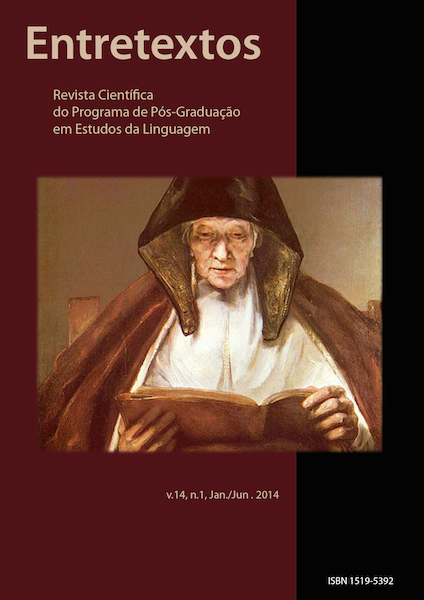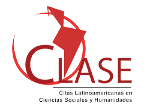Bilingual subjects and their relations with Portuguese as mother tongue: The Desire of Completeness and the Constitutive Lack
DOI:
https://doi.org/10.5433/1519-5392.2014v14n1p79Keywords:
Bilíngue, Bilinguismo, Discurso, RepresentaçõesAbstract
The objective of this study is to investigate the relation of bilinguals, speakers of English and Portuguese, with Portuguese. Thus, I analyze the discursive clippings, obtained from the responses of ten bilingual subjects, to two questions: Which of your two languages do you most enjoy? Why? and Which of your languages is more important to you? Why?. The texts obtained through these questions are analyzed in order to find the representations that these subjects have about Portuguese and, therefore, show the eruption of speeches about their identities. I propose an interpretation of these discursive clippings theoretically supported by the French Discourse Analysis with theoretical contributions of the concept of social representations (MOSCOVICI, 2003; JODELET, 2001). I also support the idea of linguistic prejudice (BAGNO, 2002) that emerged in the participants' speech. Data analysis pointed to the fact that these individuals give to Portuguese the classification of difficult which is materialized when the subject, to justify his position, emphasizes the grammatical rules that, for him, are impossible to put into use. These statements seem to reveal the constitutive lack of the speaker, as well as his desire for a "perfect" language. This ideal language becomes part of the subject's imagination and he begins to desire it, and thus, his linguistic performance is seen as insufficient and incomplete.
Downloads
References
COURTINE,J. Analyse du discours politique. Le discours communiste adressé aux chrétiens. In.: Langages. Paris: Larousse, 1981.
FOUCAULT, M. Microfísica do poder. Rio de Janeiro, RJ: Graal, 1979.
FOUCAULT, M. Vigiar e punir: nascimento da prisão. Petrópolis: Vozes, 1987.
FOUCAULT, M. Em defesa da sociedade: curso no Collège de France. São Paulo: Martins Fontes, 1999.
GHIRALDELO, C. As Representações de Língua materna: Entre o Desejo de Completude e a Falta do Sujeito, 2002. Tese(Doutorado em Linguística Aplicada). Universidade Estadual de Campinas, Campinas/SP, 2002.
JODELET, D. Representações Sociais: um domínio em expansão. Rio de Janeiro: EDUERJ, 2001.
LACAN, J. O estádio do espelho como formador da função do eu. In: LACAN, J. Escritos. Tradução de V. Ribeiro. Rio de Janeiro: Zahar, 1998. p. 96-103
LACAN,J. O seminário, livro 20: mais, ainda. Rio de Janeiro: Jorge Zahar Editor, 1982.
MOSCOVICI, S. La psychanalyse, son image et son public. Paris: PUF, 1961.
MOSCOVICI,S. Representações sociais: investigações em psicologia social. Petrópolis: Vozes, 2003.
PÊCHEUX, M. (1975). Semântica e discurso: uma crítica à afirmação do óbvio. Tradução de E. P. Orlandi et alii. Campinas: UNICAMP, 1988.
PÊCHEUX, M.; FUCHS, C. A Propósito da Análise Automática do Discurso: atualização e perspectivas (1975). In: GADET F.; HAK, T. (Org.) Por uma Análise Automática do Discurso: uma introdução à obra de Michel Pêcheux. Trad. de Péricles Cunha. Campinas: Unicamp, 1997. p. 163-235.
POSSENTI, S. Os limites do discurso. Curitiba: Criar Edições. 2002.
Downloads
Published
How to Cite
Issue
Section
License
Copyright (c) 2014 Entretextos

This work is licensed under a Creative Commons Attribution 4.0 International License.
Entretextos adota a Licença Creative Commons Attribution 4.0 International, portanto, os direitos autorais relativos aos artigos publicados são do/s autor/es.
Sob essa licença é possível: Compartilhar - copiar e redistribuir o material em qualquer suporte ou formato. Adaptar - remixar, transformar, e criar a partir do material, atribuindo o devido crédito e prover um link para a licença e indicar se mudanças foram feitas.
























